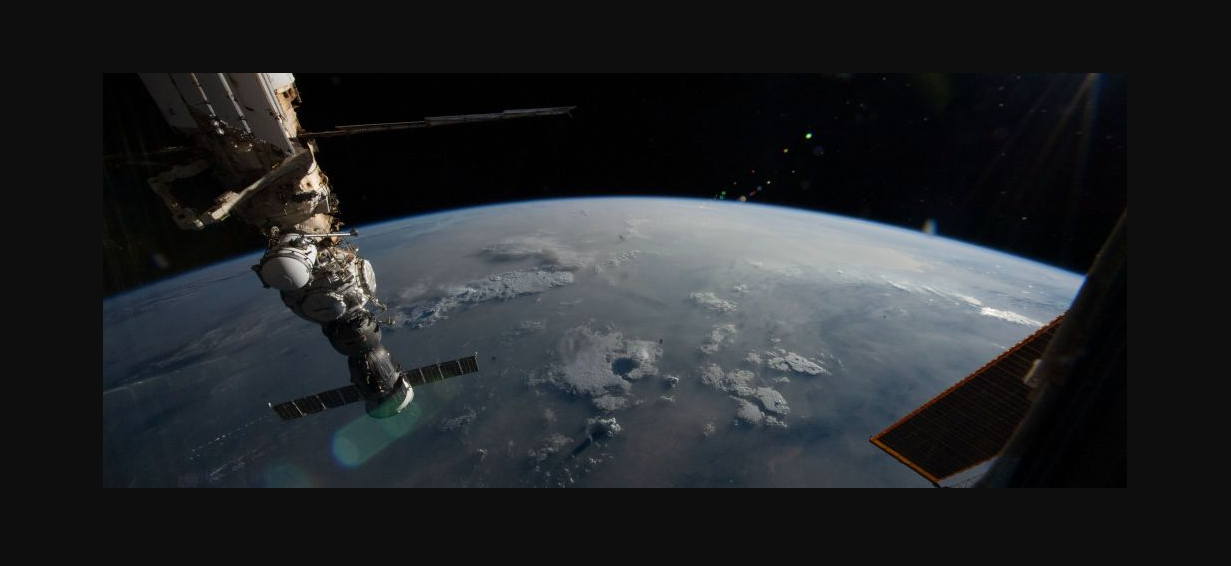Unexpected Power Outage Caused NASA To Lose Contact With ISS For The First Time
On Tuesday, an unexpected power outage caused NASA to lose contact with ISS for the first time. This marked the first time since the International Space Station (ISS) became fully operational in 2009 that NASA had to rely on its backup control systems to re-establish contact with the astronauts aboard the station, which orbits hundreds of kilometers above Earth's surface.
Author:Daniel JamesReviewer:Anderson PattersonJul 27, 202311.4K Shares407.8K Views

On Tuesday, an unexpected power outage caused NASA to lose contact with ISS for the first time. This marked the first time since the International Space Station (ISS) became fully operational in 2009 that NASA had to rely on its backup control systems to re-establish contact with the astronauts aboard the station, which orbits hundreds of kilometers above Earth's surface.
Michael Collins was famously described as the most isolated person in human history during the Apollo 11 mission when Armstrong and Aldrin embarked on their historic moonwalk. This isolation phenomenon was encountered by every subsequent Apollo mission, with the exception of Apollo 13.
Unlike Collins' situation, the outage lasted for approximately 90 minutes before normal communications could be resumed. During this interim period, NASA maintained communication with the astronauts on board, Frank Rubio, Woody Hoburg, and Stephen Bowen, using the Russian communication systems as an alternative.
The Expedition 69 crew, which includes Roscosmos cosmonauts Dmitri Petelin, Andrey Fedyaev, and Commander Sergey Prokopyev, along with UAE astronaut Sultan Alneyadi, were also on board the ISS during this incident.
“„It wasn't an issue on board. That was purely a ground problem. At no time was the crew or the vehicle in any danger.- Space station program manager Joel Montalbano of NASA
The power outage that occurred at NASA's Johnson Space Center was an unintended consequence of planned upgrades to the ground power system of the building. During the outage, telemetry, voice communication, and command capabilities were temporarily lost, causing a disruption in communications with the International Space Station (ISS).
Despite the unexpected nature of the outage, NASA's mission control team acted swiftly, and within just 20 minutes, they established contact with the space station using the Russian communication systems as a backup. Additionally, the backup control center, located several miles away, was brought online shortly after, ensuring continuous support and communication with the astronauts aboard the ISS. Thanks to these prompt measures, normal communications were successfully restored, and the situation was swiftly brought under control.
“„We knew this work was going on, and in preparation for that we have a backup command and control system that we would use if we have to close the center for weather emergency - especially important during the hurricane season. That hardware was ready to go. Within about 90 minutes, we were up and running with full command, telemetry and voice to the International Space Station.- Joel Montalbano of NASA
Conclusion
The power outage issue has now been resolved, and NASA's mission control is once again fully operational. In light of the incident that disrupted communications with the International Space Station (ISS), NASA has taken the matter seriously and intends to conduct a thorough investigation. The primary goal of this investigation is to identify the root cause of the outage and implement necessary measures to prevent its recurrence during the remaining years of ISS operation before its planned deorbit in 2031.
Jump to

Daniel James
Author
Daniel James is a distinguished gerontologist, author, and professional coach known for his expertise in health and aging.
With degrees from Georgia Tech and UCLA, including a diploma in gerontology from the University of Boston, Daniel brings over 15 years of experience to his work.
His credentials also include a Professional Coaching Certification, enhancing his credibility in personal development and well-being.
In his free time, Daniel is an avid runner and tennis player, passionate about fitness, wellness, and staying active.
His commitment to improving lives through health education and coaching reflects his passion and dedication in both professional and personal endeavors.

Anderson Patterson
Reviewer
Anderson Patterson, a tech enthusiast with a degree in Computer Science from Stanford University, has over 5 years of experience in this industry.
Anderson's articles are known for their informative style, providing insights into the latest tech trends, scientific discoveries, and entertainment news.
Anderson Patterson's hobbies include exploring Crypto, photography, hiking, and reading.
Anderson Patterson's hobbies include exploring Crypto, photography, hiking, and reading.
In the Crypto niche, Anderson actively researches and analyzes cryptocurrency trends, writes informative articles about blockchain technology, and engages with different communities to stay updated on the latest developments and opportunities.
Latest Articles
Popular Articles